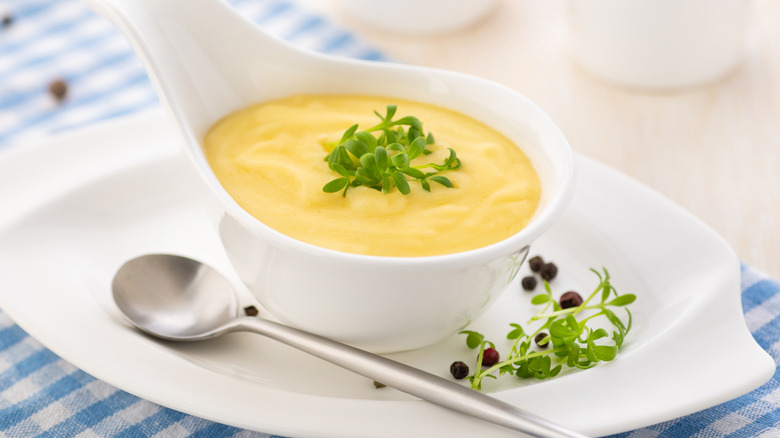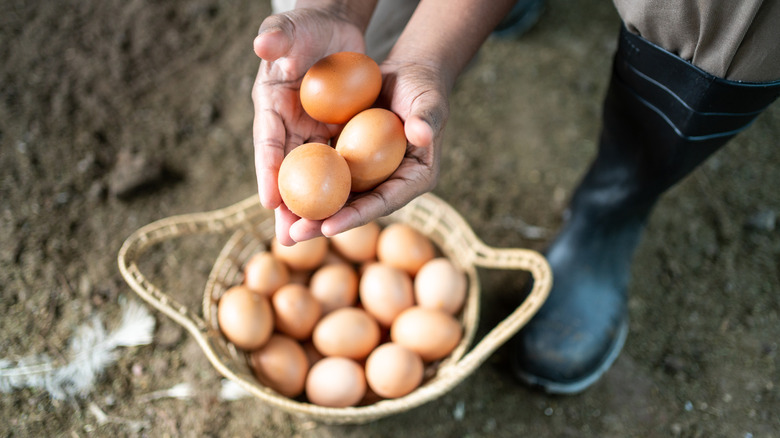The Crucial Reason You Need To Use The Freshest Eggs In Mousseline Sauce
Hollandaise is one of the five French mother sauces, many of which serve as the base of all manner of culinary flights of fancy. If you've been dreaming of a creamier and more luscious version of Hollandaise, it's time to get acquainted with Mousseline sauce, which is simply Hollandaise with whipped cream folded in. Mousseline is very simple to make, requiring only five ingredients — eggs, butter, lemon juice, salt, and whipped cream — but because of this, keep in mind the cardinal rule: The fewer things that go in a dish, the higher quality each thing must be. If for no other reason than they're just not cooked that long, pick the freshest eggs possible; preferably free-range and organic. It makes a huge difference.
When making the Hollandaise base for a Mousseline sauce, egg yolks are whisked slowly with butter over low heat until the mixture incorporates, which, with the lemon juice, forms an emulsion. The bottom line is that this process doesn't fully cook the eggs (the whole point is to avoid scrambling them!), so choose this particular ingredient wisely. Luckily, we're here to tell you how to do just that.
How to choose the freshest eggs
We started out by admonishing you to choose organic, free-range eggs. This might sound bougie until you remember that all eggs fit this description until the advent of commercial factory farming. A simple comparison of egg yolks will reveal that the free-range chicken was fed a more nutritional diet, as evidenced by its richer yellow color and milder taste. The second, and more important, criteria when choosing eggs is their freshness. Fresh eggs have a milder taste. As they age, eggs will start to assume fishy and/or sulfurous qualities — a big disqualification for inclusion in a creamy, dreamy Mousseline sauce!
No matter which brand you choose, supermarket eggs can be at least a month-and-a-half old by the time you buy them, so what to do? Our advice is to not only check the sell-by date, but also the so-called "Julian Date," a number between 001 and 365 (corresponding to January 1 and December 31) printed on the carton telling you on what date those eggs were washed, graded, and packed. Once home, store them in the coldest part of your fridge. With this in mind, pick the freshest eggs, make the fluffiest Mousseline sauce, and enjoy every voluptuous bite.

